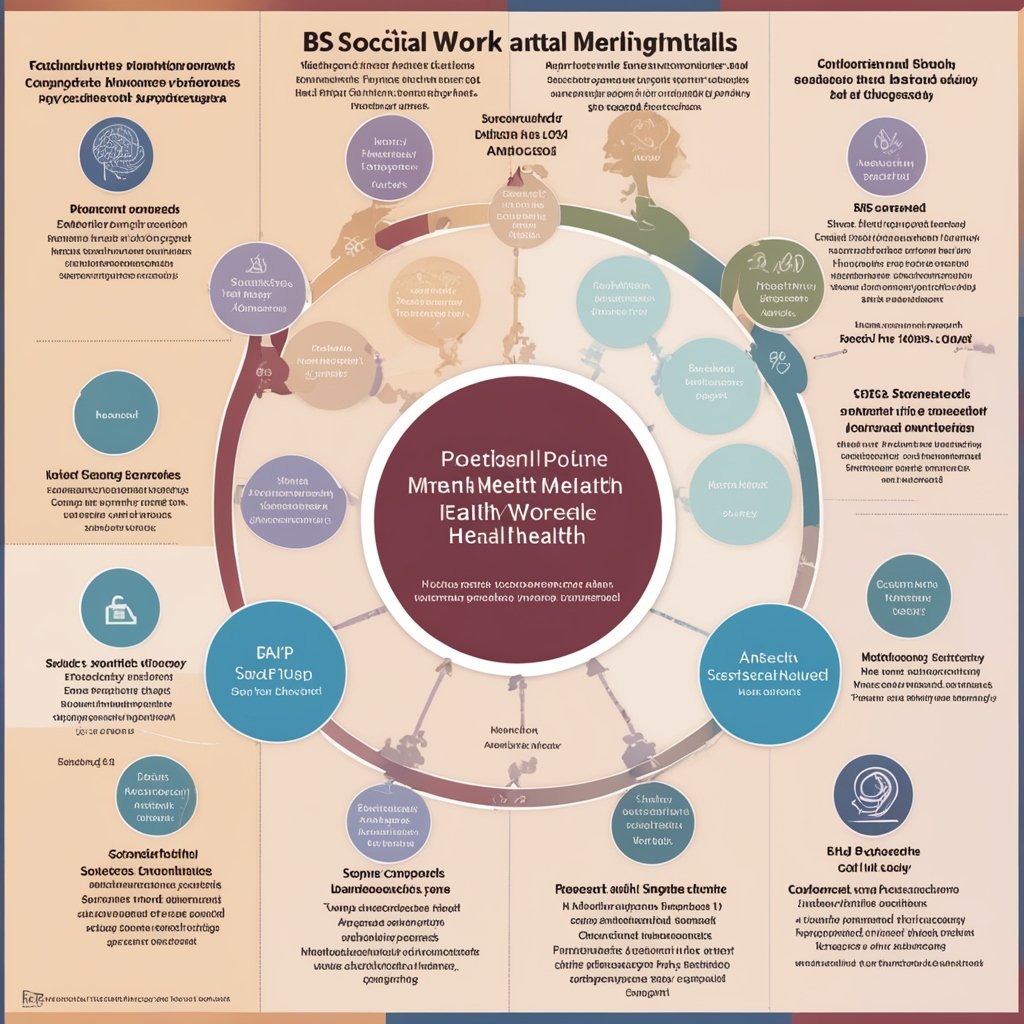A Guide to the BPS Model and Assessment in Social Work and Mental Health for 2023
Introducing the BPS Model of Health Transformation. Everything You Must Understand
What precisely is the biopsychosocial model (BPS model), which holds the potential to transform our comprehension of wellbeing? It’s about to happen to you! In a society where mental health is more important, many people now consider leading a balanced, holistic lifestyle to be essential.
We will provide you with a brief introduction to the biopsychosocial model (BPS model) in this Case Book Work Hub post. The BPS model is a comprehensive approach that integrates the social, psychological, and physical dimensions of well-being.

Photo by nappy
Overview of the BPS Model of Health
As we examine the relationships between the body, mind, and social environment, fasten your seatbelt.
See Also: Best Macro Level Social Work – Guide for Macro Social Workers
Would you like to share feedback on this BPS model of health guide? If so, contact the Case Book Work Hub Team.
What is the BPS Model of Mental Health and Social Work?
The biopsychosocial model of health, a comprehensive framework for comprehending health and well-being, is referred to as the “BPS model of health” in social work and mental health.
The BPS model acknowledges that a variety of elements, such as biological, psychological, and social factors, have an impact on health.
The spiritual component is added to the approach by the BPSS model social work and mental health.
Sign up for the All-in-One Case Book Management Hub program now to see how it will revolutionize the way you manage your social work or mental health practice. This program lets you keep track of all of your clients and cases.
We will then discuss the essential elements of the BPSS social work and mental health approach.
Do you have any questions about BPSS model social work and mental health approach? If so, contact the Case Book Work Hub Team.
Important Elements of the BPS and BPSS Models | BPSS Social Work and Mental Health Method
The interaction of biological, psychological, and social elements is central to the BPS model in social work and mental health, and BPSS incorporates a spiritual component.
Below is an explanation of every element in the BPSS and BPS models:
Factors related to biology: BPS Social Work and Mental Health
In the BPSS model of social work and mental health, biological considerations play a critical role.
Important biological elements taken into account in the BPS health model consist of:
- genetics
- neurological processes
- hormonal imbalances
- chronic diseases, and
- age-related changes.
Considering these factors enables healthcare professionals to provide tailored and effective care based on individual needs.
Our cutting-edge client and case management platform empowers you to efficiently track, organize, and collaborate on client cases, ensuring seamless coordination and improved outcomes.
Startup today and experience the full power of the All-in-One Client and Case Book Management Hub Software.
Aspects of Psychology: BPSS Social Work and Mental Health
A crucial component of the BPS model of health is psychological.
In the BPSS model, social work and mental health are examples of psychological aspects that include:
- stress
- health beliefs
- mental health
- cognitive processes
- emotional well-being
- coping strategies, and
- personality.

BPS Social Work & Mental Health Model
Social Factors: Mental Health & Social Work at BPSS
These elements pertain to a person’s social surroundings, encompassing their connections, neighborhood, and cultural background. The following are some instances of social elements that are significant in the BPSS social work model:
- social support
- socioeconomic status
- cultural beliefs and practices
- environmental factors
- access to healthcare and education
- employment and work-related stress
- social networks and social isolation
Spiritual Aspects in BPSS Mental Health and Social Work
The following spiritual elements are included in the framework of the BPSS model:
- beliefs and values
- meaning and purpose
- connection and community
- rituals and practices
The BPSS and BPS models acknowledge that a complex interplay of biological, psychological, social, and spiritual variables determines health rather than only biological causes or the absence of sickness.
Searching for case management and client management software that includes case note templates, intake forms, correspondence, assessments (including a template for the BPSS assessment), and much more?
Experience the ease of use, productivity boost, and outcome-driven solution that streamlines your workflow with our Social Work Client and Case Book Management Hub.
The BPSS and BPS model—exactly what we’ll be looking at next—is used to guide assessments, interventions, and therapy in social work and mental health practice.
Related: Guide on Screening Tools for Anxiety, Depression, OCD, PHQ, and GAD
What is Biopsychosocial Spiritual Assessment? | BPSS Assessment
A biopsychosocial spiritual assessment (BPSS assessment) is a comprehensive evaluation tool used in various fields, including healthcare, social work, and mental health.
The BPSS assessment process typically involves a combination of:
- interviews
- questionnaires
- observations, and
- medical or psychological tests.
A BPSS assessment template is a structured framework used to gather information about an individual’s biological, psychological, social, and spiritual factors in a systematic manner.
If you’re looking for a BPSS assessment template that you can send to your clients with just 1-click, subscribe to the Case book Work Case Book Management Hub and change the way you work.
Furthermore, the BPSS assessment provides a comprehensive overview of their health and well-being. BPSS assessment template typically includes sections to document:
- personal information
- medical history
- mental health status
- social context
- spiritual context, and
- other relevant factors.
Read More: Best Guide to Soap Progress Notes
The BPSS Assessment’s Objective in Social Work and Mental Health
In social work and mental health, the goal of a BPSS assessment is to gain a thorough understanding of a person’s mental health status and the different aspects that influence their well-being.
By taking into account the biological, psychological, social, and spiritual aspects that affect an individual’s mental health, the BPSS assessment technique enables professionals to create a comprehensive picture of their clients’ requirements and tailor treatments accordingly.
A BPSS assessment’s goal can be summed up as follows:
- Gathering Information
The BPSS assessment collects information about the individual’s biological factors, psychological factors, social, and spiritual factors into a BPSS assessment template.
- Identifying Strengths and Challenges
The BPSS assessment identifies the individual’s strengths, resources, and coping mechanisms, as well as the challenges they may be facing.

Photo by Tima Miroshnichenko
Purpose of a BPSS Assessment in Mental Health and Social Work Practice
- Developing Treatment Plans
The assessment findings inform the development of a tailored treatment plan. This may involve a combination of medical interventions, therapy, social support, and community resources.
- Monitoring Progress
The BPSS assessment provides a baseline against which progress can be measured. By periodically reassessing the biopsychosocial factors, practitioners can evaluate the effectiveness of interventions and make adjustments to the treatment plan as needed.
This is where SWP’s All-in-One Case Book Management Hub Platform comes in to revolutionize the way you work. Subscribe now and take control of your case management process with Case Book Management Hub Software.
To conclude, the BPSS assessment plays a crucial role in understanding the complexities of an individual’s mental health and developing an inclusive and person-centered approach to their care.
Related: Biopsychosocial Assessments, Intakes, and Templates
BPS Social Work & Mental Health Model Conclusion
Understanding and managing health and well-being from a holistic and comprehensive perspective is made possible by the biopsychosocial BPSS and BPS model of health.
The BPS model of social work and mental health takes into account the interaction of biological, psychological, and social elements in order to acknowledge that an individual’s health is influenced by numerous aspects.
Healthcare is now taking a more inclusive and complete approach thanks to the BPS model, which has increased overall well-being and resulted in better outcomes.
By adopting the BPS approach, medical practitioners can deliver efficient, all-encompassing care that takes into account a patient’s medical history.
Don’t Miss: Mental Health Assessment Guide with Examples
